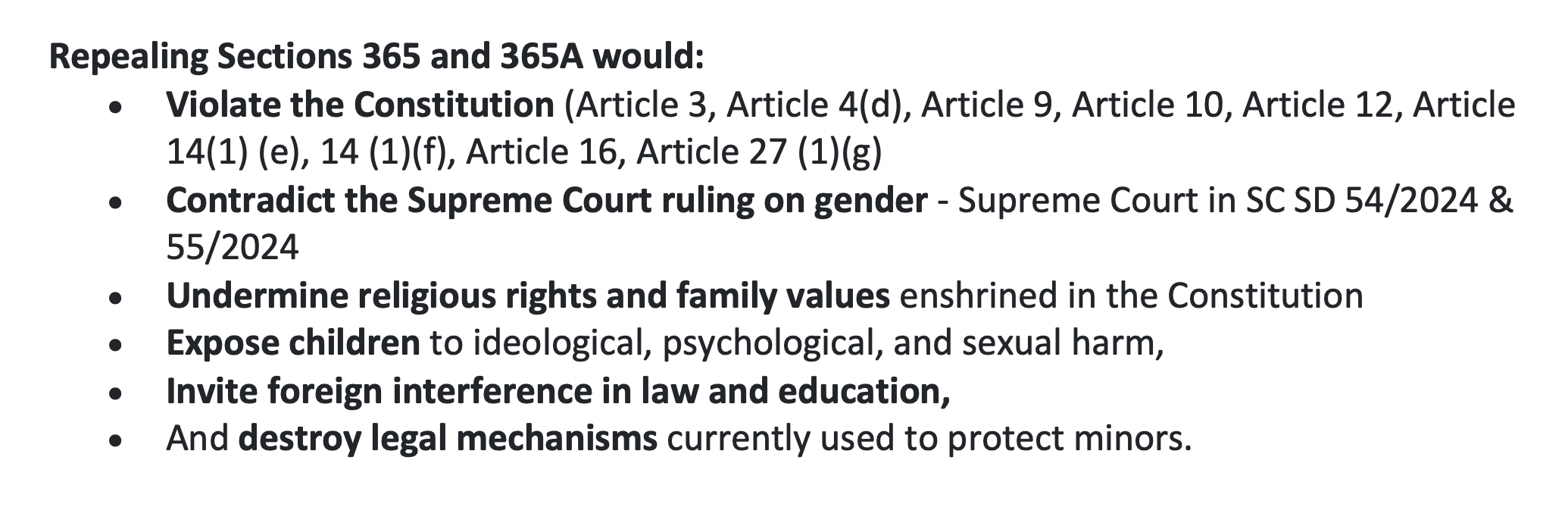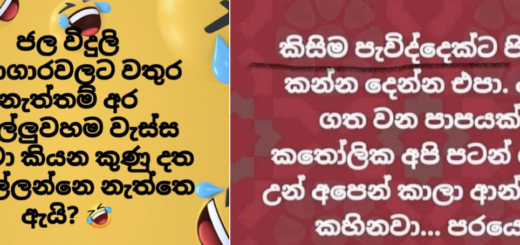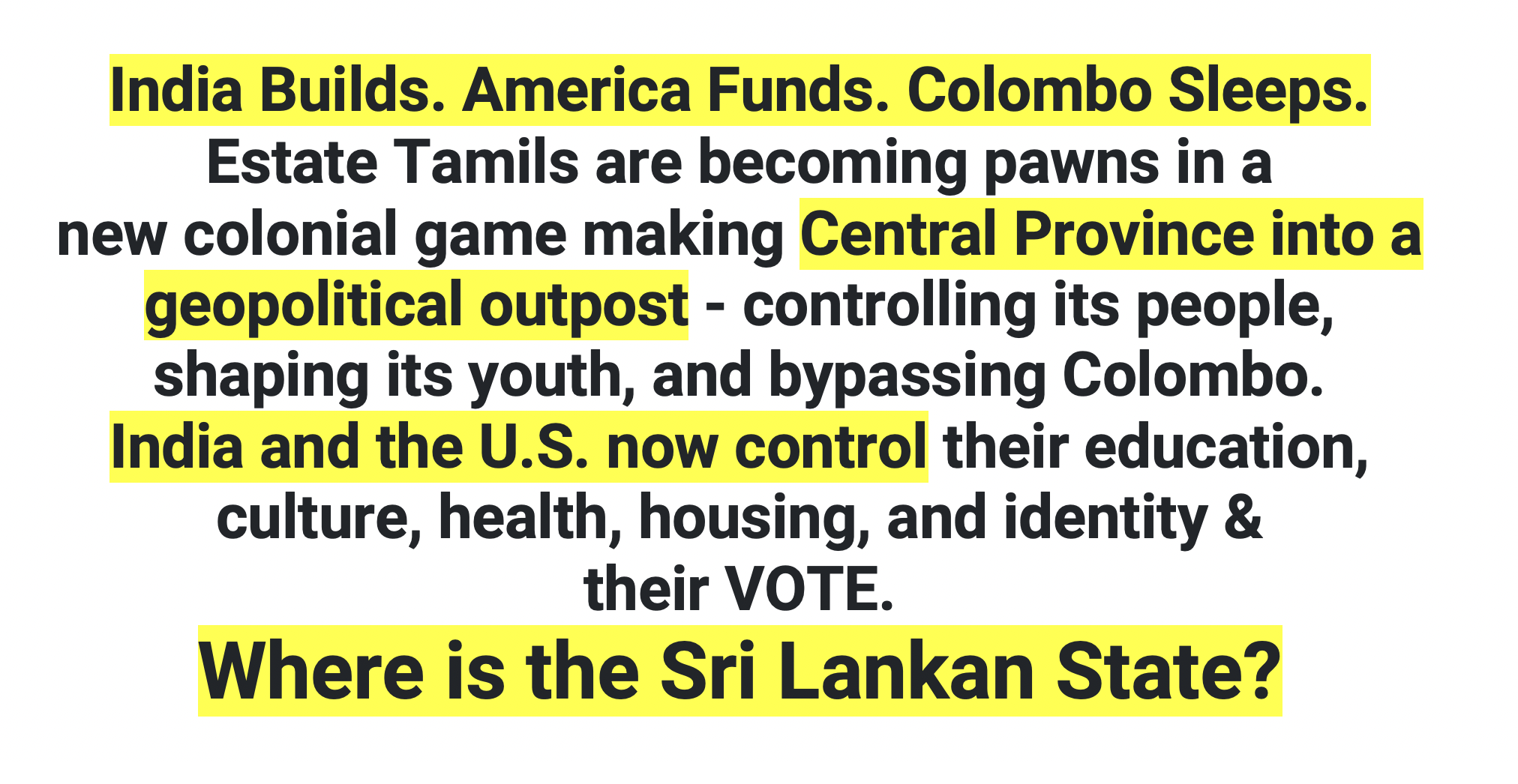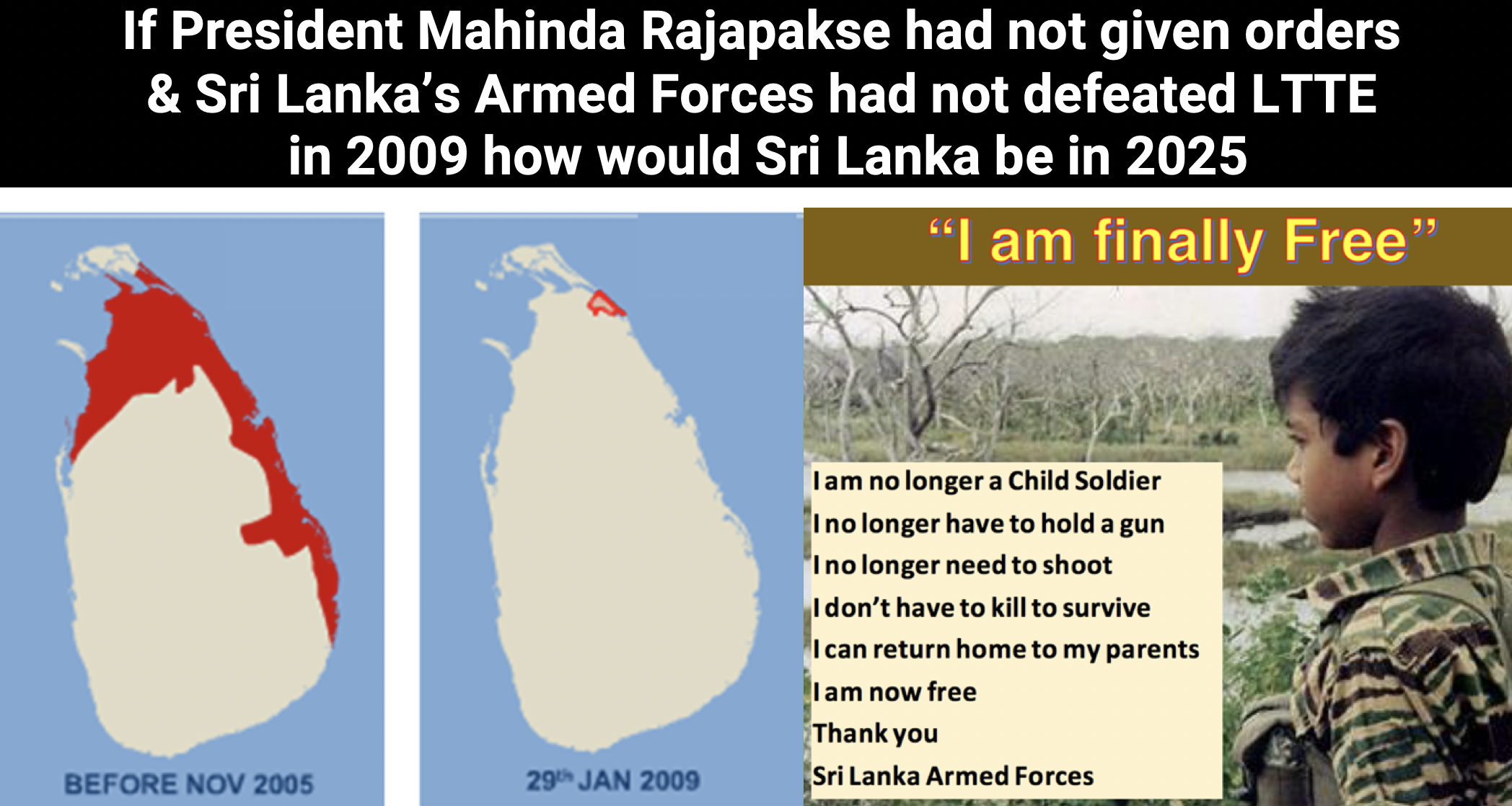Legalizing homosexuality in Sri Lanka: The consequences

Legalizing homosexuality in Sri Lanka through the repeal of Penal Code Sections 365 and 365A would trigger a cascade of profound and detrimental consequences across the nation’s constitutional framework, moral fabric, religious integrity, and existing legal order. This move, largely seen as driven by foreign agendas rather than local demand, directly violates core Articles of the Constitution, including Articles 3, 4(d), 9, 10, 12, 14(1)(e), 14(1)(f), 16(1), 16(2), and 27(1)(g).
Constitutional Violations
- Defiance of Supreme Court Authority and Erosion of Sovereignty:
- The repeal of Sections 365/365A directly defies the Supreme Court’s June 2024 Determination (SC SD 54/2024 & 55/2024), which warned against “ideological overreach” and emphasized conformity with Sri Lanka’s “constitutional and cultural identity.” This move, pressured by external lobbies and not local citizens, bypasses the sovereign will of the people and constitutes an imposition against democratic foundations.
- Constitutional Provisions:Violates Article 3 (Sovereignty of the People) by allowing foreign agendas to dictate national policy, and Article 4(d) (Exercise of Judicial Power) by subverting the judiciary’s role in safeguarding constitutional morality.
- Infringement on Fundamental Freedoms of Speech, Conscience, Association, and Enterprise:
- Legalizing homosexuality would inevitably lead to the criminalization of traditional views as “hate speech.” Religious sermons, Dhamma talks, schoolteachers, and parents expressing traditional beliefs would risk legal action. The Online Safety Bill, meant for protection, could be twisted to silence religious communities. Furthermore, individuals, religious institutions, schools, and businesses could be coerced to associate with, accommodate, or endorse practices and ideologies that contradict their deeply held moral or religious convictions, leading to loss of funding or recognition for non-compliance.
- Constitutional Provisions:Infringes upon Article 10 (Freedom of Thought, Conscience and Religion), Article 14(1)(e) (Freedom of Association), and Article 14(1)(f) (Freedom to Engage in any Profession, Occupation, Trade, Business or Enterprise).
- Official Liability and Breach of Public Trust:
- Policymakers and officials who proceed with this repeal, particularly under foreign pressure and without genuine local demand, risk actingultra vires (beyond constitutional authority). This exposes the State to future litigation for failing to protect children from foreseeable harm and could lead to individual liability for officials who violate their oath under Article 61 and breach the public trust doctrine.
Moral & Family Outcomes
- Total Collapse of Legal Child Protection and the Natural Family Unit:
- Sections 365 and 365A are crucial safeguards against sexual abuse and indecency, which are often overlooked in same-sex contexts. Their repeal or rewriting would remove age thresholds for consent, legalize public acts of gross indecency, and allow predators to claim “consent,” leaving children vulnerable. This directly undermines the preservation of the natural, biological family unit (man and woman) and opens the floodgates to foreign-funded activism, curriculum distortions, and the media normalization of morally injurious behavior. The claim that children can be protected while normalizing unnatural sex is a “legal fiction.”
- Constitutional Provisions:Directly contradicts Article 27(1)(g) (Directive Principles of State Policy regarding the preservation of the family), which mandates the State to foster and preserve the family as the fundamental building block of society.
- Cultural and Societal Moral Collapse:
- Ancient values, passed down through generations, will be dismissed as “outdated” or “discriminatory.” Same-sex behavior will be openly displayed in public and glorified in media, confusing children and making it difficult to protect them from sexualized content. Those who uphold traditional morality will be labeled “bigots,” leading to immense societal pressure and division. This process is a “cultural colonization” that seeks to replace Sri Lanka’s national identity with imported ideologies.
- Youth exposed to LGBTQIA propaganda and sexual confusion will face:
- Identity Crises:Unable to understand their natural biology and relationships.
- Rising Mental Illness:Documented higher rates of depression, anxiety, and suicide in Western countries that followed this path.
- Loss of Spiritual and Moral Anchors:Replacing purpose with sexual identity, destroying long-standing religious and family values.
- Warning from Western nations:Experiences from the U.S., U.K., Europe, Canada, and Australia show increased exposure to drag shows, public sex acts, erosion of parental rights, and regrettable gender-transition surgeries on minors. Sri Lanka risks repeating these documented disasters.
- Future Legal Demands Leading to Further Societal Redefinition:
- Decriminalization is merely the entry point for total foreign ideological control. Once legalized, foreign-funded lobbies will escalate demands for same-sex marriage, same-sex adoption (normalizing children being raised without a mother or father), and legal gender changes including irreversible surgeries and hormones for minors. Resistance to these demands will then be labeled “discrimination,” forcing public institutions to comply or face sanctions. This represents a systematic dismantling of Sri Lanka’s natural family, moral boundaries, and spiritual heritage.
Religious Outcomes
- Direct Violation of Buddhist Constitutional Protection:
- Article 9unequivocally vests Buddhism with the “foremost place” and obliges the State to “protect and foster the Buddha Sasana,” which includes upholding the nation’s moral fabric. Legalizing unnatural sexual acts directly contradicts fundamental Buddhist tenets (e.g., the Third Precept “Kāmesu Micchācāra” and the Vinaya’s prohibition of “pandakas”). This would profoundly erode the moral environment mandated for the Sasana’s protection, directly “impairing the very existence of Buddhism” as a guiding societal force. The Buddhist “duty precedes rights” philosophy means legalizing “lust” cannot be framed as a right under this constitutional mandate.
- Clash with All Religions and Rising Religious Unrest:
- All major religious traditions in Sri Lanka—Buddhism, Hinduism, Christianity, and Islam—unanimously consider marriage a sacred union exclusively between a man and a woman, and unequivocally reject homosexual conduct. Legalizing homosexuality would force temples, churches, mosques, and kovils into silence or risk punishment for refusing to comply with LGBTQIA agendas, provoking mass religious rejection and a crisis of trust in government institutions. Faith leaders, parents, and cultural leaders will condemn the government and foreign NGOs, creating deep division and leading to moral confusion, religious unrest, and national instability.
Violations to Existing Laws & Legal Continuity
- Assault on Historical Legal Continuity (Article 16):
- The repeal would directly defyArticle 16(1), which explicitly validates “all existing written law and unwritten law” notwithstanding any inconsistency with fundamental rights. This includes 2600 years of Buddhist jurisprudence and traditional moral tenets that underpinned Sri Lanka’s societal and legal order prior to Western occupation, further reinforced by Clause 5 of the 1815 Kandyan Convention, and reflected in the 1883 Penal Code (including Sections 365/365A). Attempting to repeal these sections on fundamental rights grounds would be a direct constitutional affront, undermining the supremacy of the Constitution and the nation’s historical legal continuity. Article 16(2) further protects punishment under existing law.
- Irreversible Legal Precedents and Compromised Legal Independence:
- Once Sections 365/365A are repealed, re-criminalizing same-sex acts becomes virtually impossible, as international bodies would block such efforts. This means future generations would be irrevocably bound by today’s betrayal, permanently compromising Sri Lanka’s legal independence and subjecting its legal system to foreign ideological standards. Foreign-funded bodies would then use the legal system to silence patriotic citizens, sue religious and community leaders, and control education, media, and public speech. This is how national sovereignty collapses—not with war, but with ideology.
In essence, legalizing homosexuality is not merely a legal change but a submission to foreign immorality disguised as progress. It threatens to dismantle Sri Lanka’s constitutional safeguards, religious heritage, moral boundaries, and the natural family structure, leading to severe social unrest and the potential erosion of national identity and future generations. Sri Lanka must resist this “foreign trap” and protect its Constitution, religion, children, and culture with courage, clarity, and unity.
Shenali D Waduge







